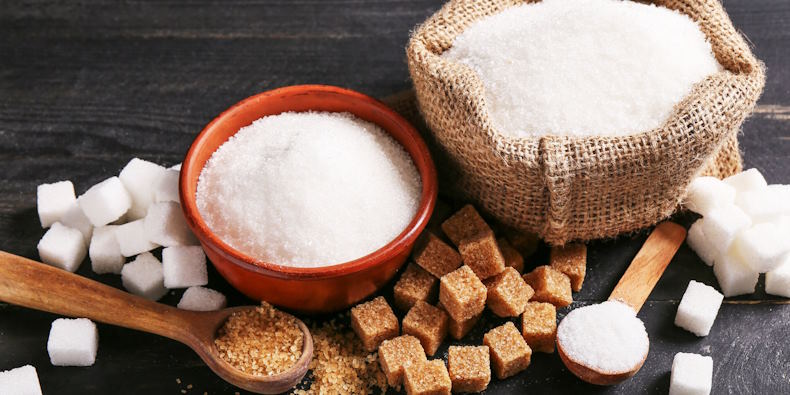While we diligently search for the latest miracle creams and treatments, what we consume every day can significantly affect our skin’s health and appearance.
Sugar, in its various forms, is ubiquitous in modern diets, present in everything from sodas and candies to seemingly innocuous items like salad dressings and sauces. Its effects on our overall health are widely discussed, but what about its specific influence on our skin?
In what ways can sugar impact skin?
Inflammation
One of the most notable effects of sugar on the skin is its ability to trigger inflammation throughout the body. Your blood sugar levels spike rapidly when you consume sugary foods, especially those with a high glycemic index. This spike triggers a cascade of inflammatory responses in the body, leading to increased inflammation in the skin. Here we speak about a key driver of various skin issues, including acne, eczema, and psoriasis.

Acne
Perhaps the most well-known link between sugar and skin condition is its association with acne. High-glycemic foods, such as sweets, sugary drinks, and processed snacks, can result in a rapid increase in insulin levels, leading to the production of androgen hormones. These hormones stimulate the production of sebum, an oily substance that can clog pores and promote the growth of acne-causing bacteria. Furthermore, high insulin levels can lead to increased inflammation, exacerbating acne breakouts.
Glycation
Another significant impact of sugar on the skin is through a process known as glycation. When sugar molecules in the bloodstream attach to proteins like collagen and elastin, they form advanced glycation end products (AGEs). These AGEs compromise the structure and functionality of these proteins, causing a loss of skin elasticity and firmness. Over time, glycation accelerates aging, contributing to the development of wrinkles, fine lines, and sagging skin.
Collagen Degradation
As highlighted earlier, glycation plays a significant role in the breakdown of collagen, the protein responsible for the skin’s structural integrity and elasticity. When glycation damages these collagen fibers, the skin’s firmness and resilience diminish, paving the way for wrinkles and sagging.


 Love beauty hacks?
Love beauty hacks?